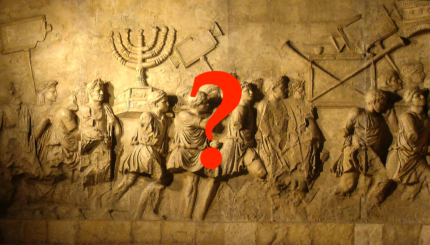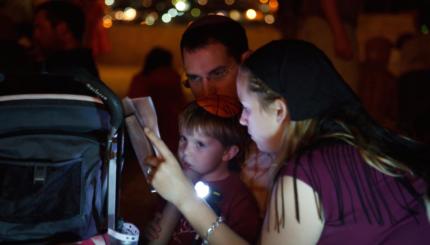Every person has a different way of dealing with grief; some cry, shout, pray, fast, or choose to celebrate and remember better times. At first thought, it would seem logical to ignore or downplay bad things, to push the pain aside and focus on the positive, the now. There are endless lyrics encouraging society to look forward and not to focus on the past. But Jewish tradition stands in stark contradiction to this. We do not ignore our history, which includes our tragedies. Each death, battle, war, destruction, eviction, genocide, slander is recognized as equally important as our celebrations.
On Tisha B’Av, we commemorate many of these atrocities, which raises again the question of why our heritage refuses to forget or bury our bad memories. Why focus on such grief and sadness? What lesson is to be gained from remembering so many of deaths?
Tisha B’Av is known as “the saddest day on the Jewish calendar.” It marks the destruction of both of the Temples, and also stands as a date throughout Jewish history when other tragedies befell our people. Traditional observance includes taking the day off from work or joyous activities, wearing black, rending garments, reading Lamentations and poems of loss, and fasting.
I may not take the day off of work, but this year I will engage in personal prayer and spend time thinking about the meaning of my life and the lives of others. There are the traditional themes: the value of life, connecting with my personal history, learning lessons from the past, learning about history (academically), and evaluating what my values are. However, this year I want Tisha B’Av to mean something more, to touch me more deeply. I feel a need to acknowledge sorrow.
Over the last year we have been inundated with hateful speech, threats, death, fighting, and the grumblings of truly dangerous paths ahead. Logic seems to be going out the window, and people are making decisions based on fear (the most dangerous emotion). If I say only one prayer this year it will be for calm. Only when calm can people begin to breathe, bring in their knowledge of history repeating itself, and consider long term ramifications of decisions that instinctively seem like the best course of action.
Humanity has struggled with fear since our inception. Fear has found a brother in hate and a cousin in discrimination. We need not look further than our own American history and how we handle immigration: The “other” has always had to struggle to find inclusion, whether it was the Irish, Chinese, Jews, Mexicans, Somalis; yet at the same time, America still takes pride in our “melting pot” (or, more appropriately, “salad bowl”) identity. I pray for a day when we remember the cost of fear, hate, and discrimination because we have faced that not just once or twice, but millions of times over in every life lost.
My Jewish heritage asks me not to forget but always to remember what it feels like to be the “other”, the stranger in the land of Egypt. It asks me to remember what it feels like to not have a home, to lose a home, to be silenced, to be beaten, and to be burned. It also empowers me by teaching me that “to save a life is to save a world, to destroy a life is to destroy a world.”
When I was an assistant principal in the Mississippi Delta and had to break up fights, we would require the students go into separate rooms before we would move into the discussion phase. We gave them ample time to just sit and breathe, to get themselves to a calmer state of mind. We knew that when their hands were still in a fist, chest pulsating, and face crimson with anger and, yes, fear– they were not going to have a productive conversation, no matter how badly they wanted to move on. We knew that the only healthy way they could move forward was get to a calmer place, then return to dialogue together. The same is true in our daily lives, and I believe Tisha B’Av and the Jewish tradition of gleaning lessons from loss can remind us of this truth.
This Tisha B’Av, I pray for calm for all of us, so we can collectively move closer to peace.
Jewish food, holidays, Torah, Shabbat, history, blogs and more in your inbox – sign up now!



